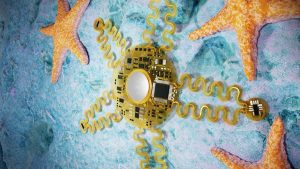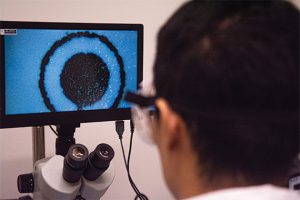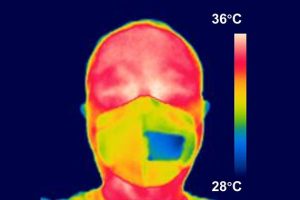
June 6, 2025
Mizzou Engineering leaders awarded named professorships
These three-year appointments recognize excellence in research, teaching and service across multiple disciplines.

April 2, 2025
Scientists unveil starfish-inspired wearable tech for heart monitoring
Mizzou researchers' device includes AI technology to detect potential heart problems with over 90% accuracy.

April 30, 2024
An important step forward in the future of self-health monitoring
Zheng Yan and a team of researchers at the University of Missouri have made a significant breakthrough in their ongoing development of an on-skin wearable bioelectronic device. The key feature: wireless charging — without batteries — through a magnetic connection.

Feb. 9, 2023
Wear and forget: an ultrasoft material for on-skin health devices
Zheng Yan and a team of researchers at the University of Missouri may have a solution. They have created an ultrasoft “skin-like” material — that’s both breathable and stretchable — for use in the development of an on-skin, wearable bioelectronic device.

Jan. 5, 2023
Department of Chemical and Biomedical Engineering name change reflects research focus
Mizzou Engineering will put more focus on research and innovations around chemical and biomedical innovations in the coming years.

Dec. 7, 2022
Mizzou Engineering researchers design new heart health wearable device
A team of Mizzou Engineering researchers are using a $2.6 million grant from the National Institutes of Health (NIH) to help create a breathable material — with antibacterial and antiviral properties — to support the team’s ongoing development of a multifunctional, wearable heart monitor.

June 27, 2022
Personal health trackers may include smart face mask, other wearables
Zheng Yan, an assistant professor of biomedical, biological and chemical engineering recently published two studies demonstrating different ways to improve wearable bioelectronic devices.